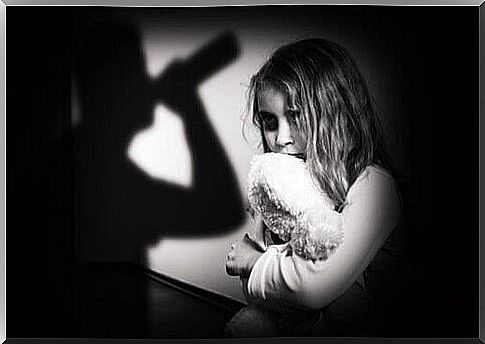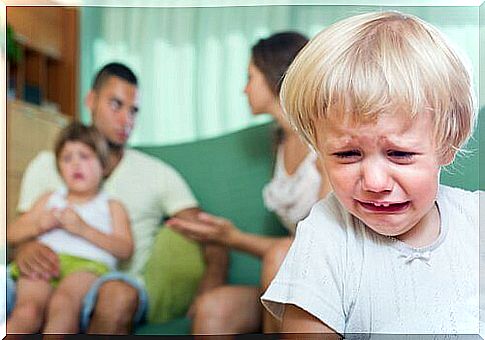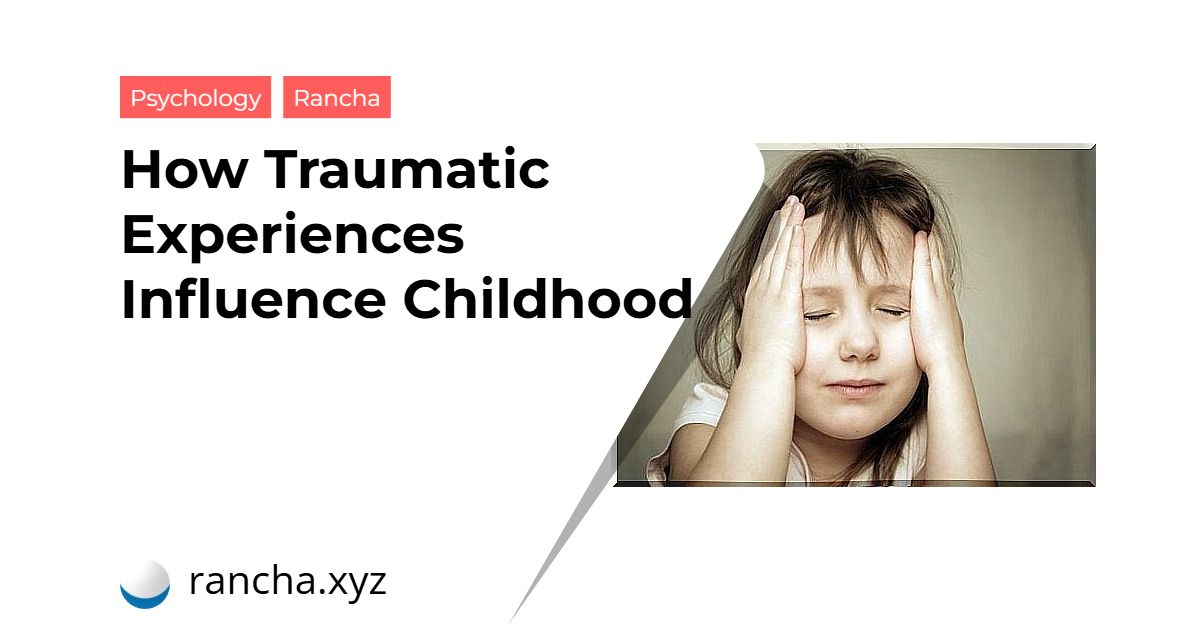Living traumatic experiences during childhood leaves sequelae in adult life. This is a fact that underlies popular wisdom, but how do these traumatic experiences influence children’s lives? How do they affect your behavior? How do they influence your way of learning?
A recent study looked at how adverse experiences in early childhood , including “incarceration” of a parent and physical and psychological abuse, impede learning and behavior development from preschool age. The study was conducted by researchers at the Johnson Robert Rutgers School of Medicine and was published in Pediatrics , a journal of the American Academy of Pediatrics.
The importance of the preschool stage for future academic performance
According to the researchers, the study found that children in large urban areas who were exposed to traumatic events during early childhood had a higher risk of learning and behavior problems from kindergarten.

The researchers examined data from other studies that collected adverse childhood experiences, as reported by the lead author, as well as teacher-reported outcomes for academic achievement and behavior during preschool education. This step was chosen because of the evidence that it is a time in a child’s life when academic achievement and social skills can be predicted.
The results of the analysis indicate a pattern in which children who experienced a greater number of adverse experiences had below-average academic and social behavior. Language and literacy skills were below normal. In conditions of low attention and aggression on the part of adults, concerns about the behavior of these children increased.
Protecting children from traumatic experiences
Protecting children doesn’t mean putting them in a bubble. However, when they are young, their understanding of the world and their way of interpreting what happens around them is not the same as when we are adults.
Psychologist Jesus FJ Ramírez Cabañas explains that traumatic experiences that take place before age 11 generate three times more emotional and behavioral problems than if they had happened at later ages. The psychological impact of these situations tends to persist and becomes greater over time.
However, parents tend to underestimate the intensity and duration of their children’s stressful situations. These reactions vary depending on age, intellectual capacity, personality and personal aspects.

Ramírez Cabañas also explains that the impact adults make on children has a tremendous effect on their ability to remember traumatic experiences. For example, the traumatic nature of a death can make children feel helpless.
Overall, the most common problems generated by post-traumatic stress and other forms of anxiety are grief, depression, aggressive and challenging behavior, physical symptoms, low self-esteem, and academic and social difficulties.
How to act with children who have suffered a traumatic experience
Ramírez Cabañas explains that when a child has a traumatic experience, the most important thing is to act as quickly as possible to avoid the effects of post-traumatic stress. Post-traumatic stress can appear in the form of anxiety, depression and other disorders, which must be treated if the syndrome appears (which can happen even three months after the event).
There is no need to wait for this to happen, but it is helpful to teach the child to relax and immediately change their negative thoughts into positive ones. Furthermore, it is necessary to encourage them to express their feelings and opinions.

It is also important to use guided techniques to divert your thinking to more constructive or distracting aspects, such as playing, exercising or participating in group activities. Furthermore, it is very common for children to blame themselves for some disaster or the loss of a loved one. In this sense, it is important to talk to them so that this does not happen.
Another important action that must be taken is to keep children away from information about the event, whether through the media, especially television, to prevent them from seeing related images.
 rancha.xyz Be free to choose their own route to self-knowledge, health and balance of body and soul.
rancha.xyz Be free to choose their own route to self-knowledge, health and balance of body and soul.




